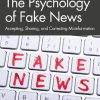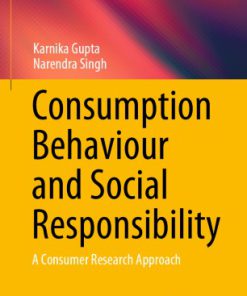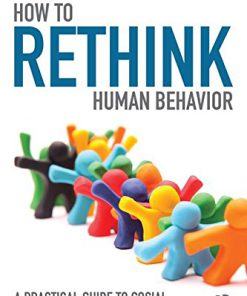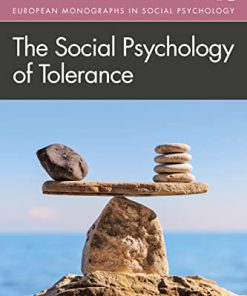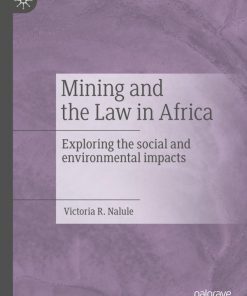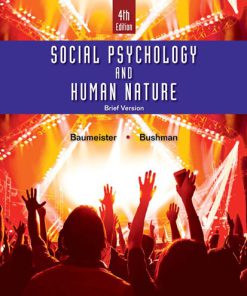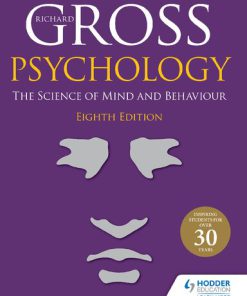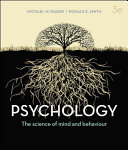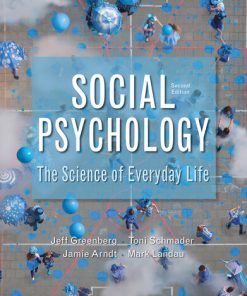Turning Psychology into a Social Science Exploring the Environmental and Social Foundations of Human Behaviour 1st Edition by Bernard Guerin 1000094763 9781000094763
$50.00 Original price was: $50.00.$25.00Current price is: $25.00.
Turning Psychology into a Social Science Exploring the Environmental and Social Foundations of Human Behaviour 1st Edition by Bernard Guerin – Ebook PDF Instant Download/DeliveryISBN: 1000094763, 9781000094763
Full download Turning Psychology into a Social Science Exploring the Environmental and Social Foundations of Human Behaviour 1st Edition after payment.
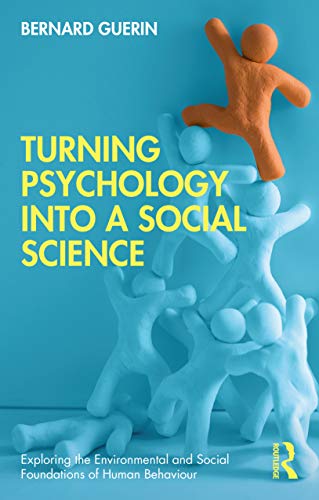
Product details:
ISBN-10 : 1000094763
ISBN-13 : 9781000094763
Author: Bernard Guerin
This radical book explores a new understanding of psychology based on human engagement with external contexts, rather than what goes on inside our heads. It is part of a trilogy that offers a new way of doing psychology, focusing on people’s social and societal environments as determining their behaviour, rather than internal and individualistic attributions. By showing that we engage directly with our complex social, political, economic, patriarchal, colonized, and cultural contexts and that what we do and think arises from this direct engagement with these external contexts, Bernard Guerin expertly demonstrates that Western ideas have systematically excluded the ‘social’ but that this is really where the major determinants of our behaviour arise. This book works through many human activities that psychology still treats as individualized and internal and shows their social and societal origins. These includes beliefs, the sense of self, the arts, religious behaviours, and the new and growing area of conservation psychology. The social structures found by sociology, anthropology and sociolinguistics are shown to shape most ‘individual’ human actions, and it is shown how the main points of Marxism and Indigenous knowledges can be better merged into this new and broader social science. Replacing the ‘internal’ attributions of causes with external contextual analyses based in the social sciences, this book is fascinating reading for academics and students in psychology and the social sciences, and provides exciting new ways to conceptualize and observe human actions in new ways and to resist the current individualistic thinking of ‘psychology’.
Turning Psychology into a Social Science Exploring the Environmental and Social Foundations of Human Behaviour 1st table of contents:
1 The opposite of rational is social, not irrational or crazy: How the ‘social’ got squeezed out of Western history
Some background
Why was the ‘social’ excluded?
Labelling the ‘non-rational’
Science
Mental health
Economics
Law and legal systems
Government and bureaucracy
Ecology
Religion and spirituality
Logic
References
2 How are our behaviours shaped by societal ‘systems’ and ‘structures’?
How do we get from sociological to ‘individual’?
Is there even an individual?
Where do societal systems and structures come from?
How do societal systems and structures impact on ‘individual’ behaviour?
Examples of deconstructing some ‘psychological’ structures and systems
Grammar
‘Personality’
Social structures
Patriarchy
How do we intervene?
References
3 The societal ecologies of modern life are our ‘psychology’
How can we link people’s actions, talking, and thinking to the large societal contexts?
A little bit of quick historical context
Some social properties of early forms of resource distribution and social relationships (economics)
What happened next in human history? The rise of modernity
What are our current life contexts that shape our actions, talking, and thinking?
What are these systems that shape our behaviours now?
From society to individual behaviour
The first basic consequences
The specific systems built in order to manage large populations of strangers: welcome to your jungle
How are we affected by these systems?
Social relationships
Economics and resource distribution
Bureaucratic neoliberalism
The bigger picture
References
4 Contextualizing beliefs as everyday language strategies
Rethinking beliefs
Contextualizing beliefs and their social properties or uses
Exercise
Contextualizing how beliefs are changed
Why it is important to radically rethink beliefs: social and political changes and effects
Examples of language use (stating beliefs) and how this engenders resources
References
5 Self, identity, consciousness, and meaning as social actions in context
Contextualizing the ‘self’
Special features of self in kin-based communities
Special features of self in modernity
Self-awareness and consciousness
What does thinking about ‘self’ do, and especially thinking about yourself?
Summary: “why does it feel like ‘my thoughts control my behaviour’?”
Reasons and meaning
Reasons
Meaning
References
6 A new look at Marxism, psychology, and social contextual analysis
Social relations of production = resource–social relationship pathways
Dialectical = contextual?
Conceptualizing contradictions and opposing forces in material action and real life
So, what is wrong with logic?
Completing Marx’s removal of idealism and metaphysics
Class structures in context
Summary
References
7 Contextualizing the arts
Contextualizing the arts
References
8 Contextualizing religion and religious behaviours
The behaviours observed
Some functions of religious behaviours
Pathway 1: the ‘internal’ functions of religious behaviours
Pathway 2: the social functions of religion
Contextualizing strategies for the social control of groups
Taboo
Rituals
Totems
Mystification about the universe
Personal crises and religious behaviour
Ambiguity
Witchcraft
Religious and non-religious behaviours?
Similar strategies in the secular world
Conclusions
References
9 Weaning yourself off social psychology
Contextualizing social psychology and methodologies
The main assumptions of social psychology that need rethinking
1. Individualistic
2. Verbal reports substituted for social behaviour
3. Little context is taken into account
4. Psychologists have been varying contexts and the consequences of behaviour all along, but in hidden ways
5. Abstract surrogates are used in lieu of proper observations
6. Thoughts control behaviour
7. Cognition is opposed to emotions
8. The context has been assumed to be white, male, middle class, and Western
9. Rules govern our behaviour
10. Methodology without context
People also search for Turning Psychology into a Social Science Exploring the Environmental and Social Foundations of Human Behaviour 1st:
social psychology experiment ideas
what makes psychology a social science
psychology as a social science example
social science psychology
the science of psychology has contributed to positive social change
Tags: Turning Psychology, Social Science, the Environmental, Social Foundations, Human Behaviour, Bernard Guerin
You may also like…
Business & Economics - Responsibility and Business Ethics
Consumption Behaviour and Social Responsibility A Consumer Research Approach Karnika Gupta
History & Research
Psychology - Social Psychology
Engineering - Social & Cultural Aspects of Technology
Mining and the Law in Africa: Exploring the social and environmental impacts Victoria R. Nalule
Politics & Philosophy - Social Sciences
Social Psychology and Human Nature, Brief 4th Edition Baumeister
Education Studies & Teaching
Psychology The Science of Mind and Behaviour 8th Edition Richard Gross
Politics & Philosophy - Social Sciences
Foundations of Social Policy: Social Justice in Human Perspective Amanda S. Barusch


